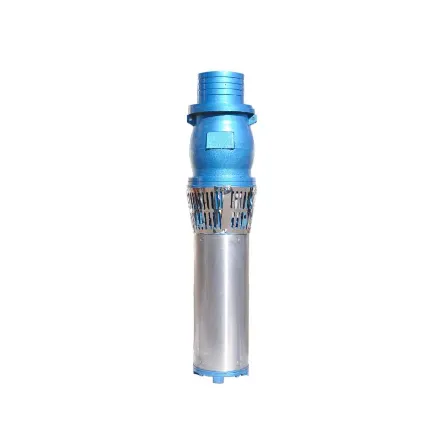Лют . 13, 2025 14:19 Back to list
Application of Submersible Pump in Various Fields
Submersible pumps, as a special type of pumping equipment, are widely used in multiple fields. Their unique design and efficient performance make them an ideal choice for solving liquid extraction and discharge problems. Submersible pumps are typically composed of motors and pump bodies, and their working principle is to extract from liquids, thus avoiding the complex process of transporting liquids to the ground before processing. This article will explore the application of submersible pumps in multiple fields such as agriculture, construction, and municipal engineering.

In the field of agriculture, submersible pumps are widely used in irrigation systems
With the continuous advancement of agricultural modernization, the demand for water-saving irrigation is increasing day by day. The submersible pump catalogue can effectively extract groundwater, supply irrigation to farmland, and provide the necessary water for crops. Meanwhile, its high efficiency and low energy consumption enable farmers to maintain efficient irrigation systems at lower operating costs. Therefore, submersible pumps play a crucial role in agricultural water management, helping to improve crop yield and quality.
In the field of architecture and construction, submersible pumps are commonly used for drainage and dewatering operations
In large-scale construction projects, especially during foundation construction, there is often a problem of groundwater influx. At this point, the submersible water pump can quickly and effectively extract accumulated water, ensuring the dryness and safety of the construction site. In addition, the portability and flexibility of submersible pumps enable them to operate in narrow spaces, greatly improving the efficiency of engineering construction. Therefore, submersible pumps have become one of the indispensable equipment on construction sites.
The application of submersible pumps in municipal engineering should not be underestimated
The urban drainage system often needs to deal with the problem of water level rise caused by rainstorm or flood. The submersible well pump plays an important role in drainage in this process. Many cities are constantly increasing investment in drainage facilities to enhance their flood prevention capabilities. The efficiency and reliability of submersible pumps have played an important role in emergency drainage and sewage treatment. In addition, submersible pumps are also used in sewage pumping stations to help effectively treat urban sewage and maintain public environmental hygiene.
In summary, dirty water pumps, as an important engineering equipment, have demonstrated diverse application values in fields such as agriculture, construction, and municipal engineering. The high efficiency, labor-saving, and cost saving characteristics of submersible pumps have led to an increasing demand in the field of liquid management and treatment. With the continuous development of technology, the performance and adaptability of submersible pumps will be further improved, providing solutions for more industries in the future and helping to achieve sustainable development goals.
-
Water Pumps: Solutions for Every Need
НовиниJul.30,2025
-
Submersible Well Pumps: Reliable Water Solutions
НовиниJul.30,2025
-
Stainless Steel Water Pumps: Quality and Durability
НовиниJul.30,2025
-
Powerful Water Pumps: Your Solution for Efficient Water Management
НовиниJul.30,2025
-
Oil vs Water Filled Submersible Pumps: Which is Better?
НовиниJul.30,2025
-
Deep Well Pumps: Power and Reliability
НовиниJul.30,2025
-
 Water Pumps: Solutions for Every NeedWhen it comes to handling dirty water, the dirty water pump is a must-have.Detail
Water Pumps: Solutions for Every NeedWhen it comes to handling dirty water, the dirty water pump is a must-have.Detail -
 Submersible Well Pumps: Reliable Water SolutionsWhen it comes to ensuring a reliable water supply, submersible well pumps are a top choice.Detail
Submersible Well Pumps: Reliable Water SolutionsWhen it comes to ensuring a reliable water supply, submersible well pumps are a top choice.Detail -
 Stainless Steel Water Pumps: Quality and DurabilityWhen it comes to choosing a water pump, the stainless steel water pump price is a crucial factor.Detail
Stainless Steel Water Pumps: Quality and DurabilityWhen it comes to choosing a water pump, the stainless steel water pump price is a crucial factor.Detail
